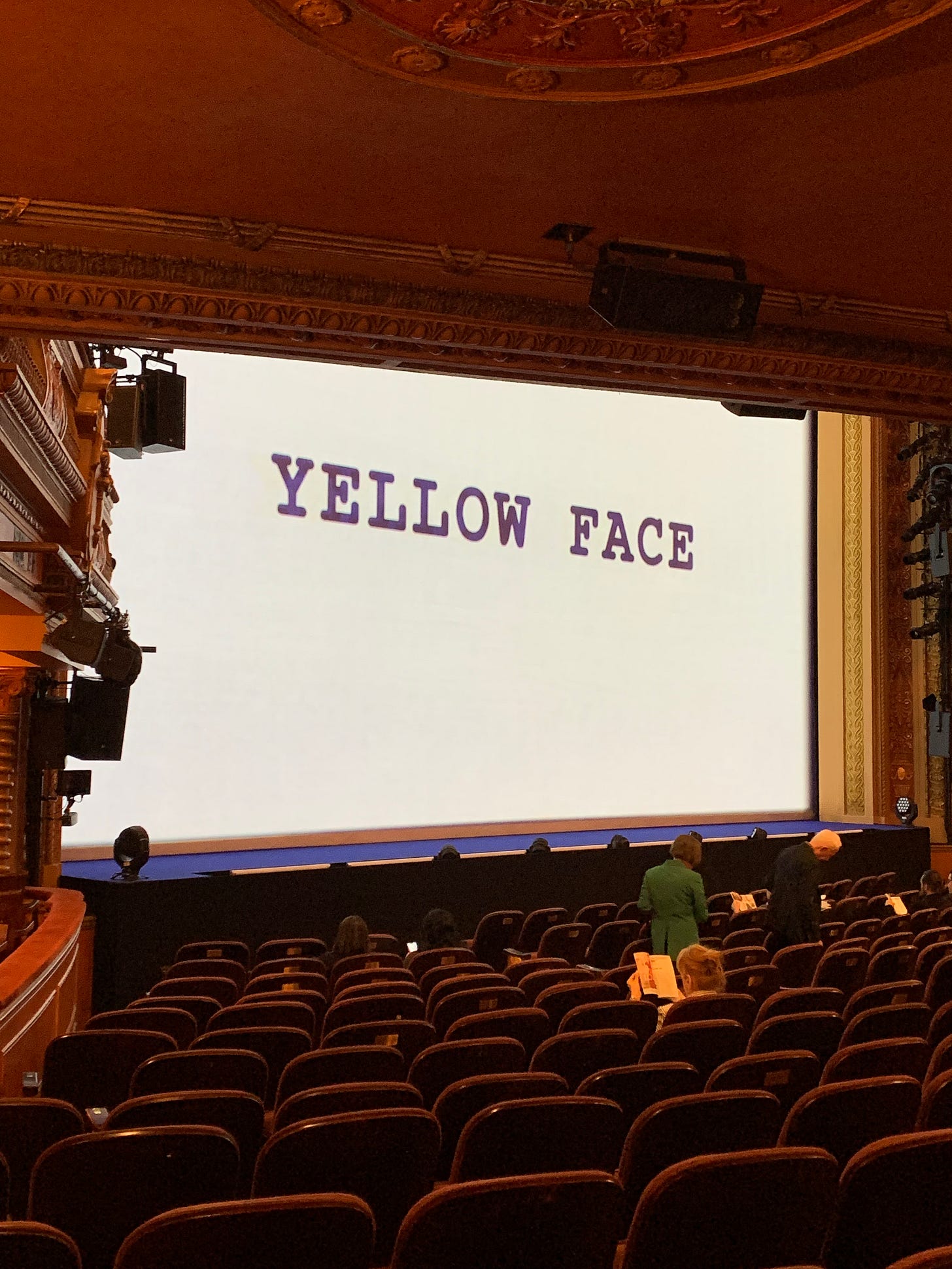YELLOW FACE
A funhouse of mirrored identities turns into a deadly personal game.
David Henry Hwang, a real life playwright, dramatizes his fictional self in this “semi-autobiographical” play currently in previews for its first Broadway production. The play is set in the mid-1990’s where Hwang’s fictional alter-ego “DHH” (played by Daniel Dae Kim) is navigating the failure of a play, the theft of Asian identity by white actors, and the Federal investigation of his wealthy banker Chinese-American father.
The fact that some of these events are true and others are not (as we are told at the end) gives the play a giddy comic tone that feels appropriately farcical but also a tentativeness as the audience is not sure where many of the scenes and jokes land. Do they land in the realm of truth or are they just made up? And this distinction matters because “Yellow Face” is also a political play. It is about the tentative ground that Americans stand on who face the charge of dual-loyalties.
The first main story that Hwang tells is about the aftermath of the “Miss Saigon” controversy in the 1990’s where producer Cameron Mackintosh, after a protest by Asian-American actors including Hwang, refused to replace his white leading actor in an Asian role with an actual Asian actor. Hwang recounts his experience in this protest but then slowly, cleverly and with great humor starts to twist and turn the controversy into a comic hall of mirrors about show business and identity. And the playwright takes a perverse delight in showing his alter-ego DHH to be as craven and as opportunistic as the MacKintosh’s of the world when it comes to the use of identity to sell an entertainment product. The pretzels of identitarian logic that DHH twists himself into to keep his career afloat are painstakingly enacted onstage by Daniel Dae Kim, who largely keeps this shaggy dog story of a play afloat with his unflagging comic timing.
The second main story the play tells is about Hwang/DHH’s wealthy banker father “HYH” (played by the superb Frances Jue). The father is a Chinese-American capitalist success story who seems to be running off of his own electrical current plugged into the source of the American dream. He is high off of the possibilities of economic and cultural advancement in his adopted country. And the trajectory of the father’s ecstatic belief in American immigrant fulfillment to the crushing of that dream is the emotional core of the play. The father is also the most well drawn character the play. He is both competitive with his son and a loving father; a man devoted to his community and a wannabe backroom player. Jue makes each facet of this man lucid and believable. His performance of the shattering of the father’s dream is affectingly tragic.
The problems with the play are many. It is nearly two decades old and though some of the debates about racial and ethnic identity feel contemporary, others feel stale. The play focuses on the personal within the political, but the political is made blurry with personal score settling. The form of the play also feels stuck in the 1990’s with much of the dialogue being delivered as direct address monologues to the audience. The direction by Leigh Silverman works hard to give a variance to these direct addresses but there is something static and discursive about much of the writing. Silverman does a good job of having the cast punctuate each comic moment but the rubbery double-takes often border on the cutesy. There is a smart projection design by Yee Eun Nam which solves many of the play’s docu-drama problems by isolating and enlarging key words in projected newspaper articles, a technique that is familiar to users of TikTok and Instagram. Arnolfo Maldonado’s production design is exquisite in its restraint and is quietly effective.


